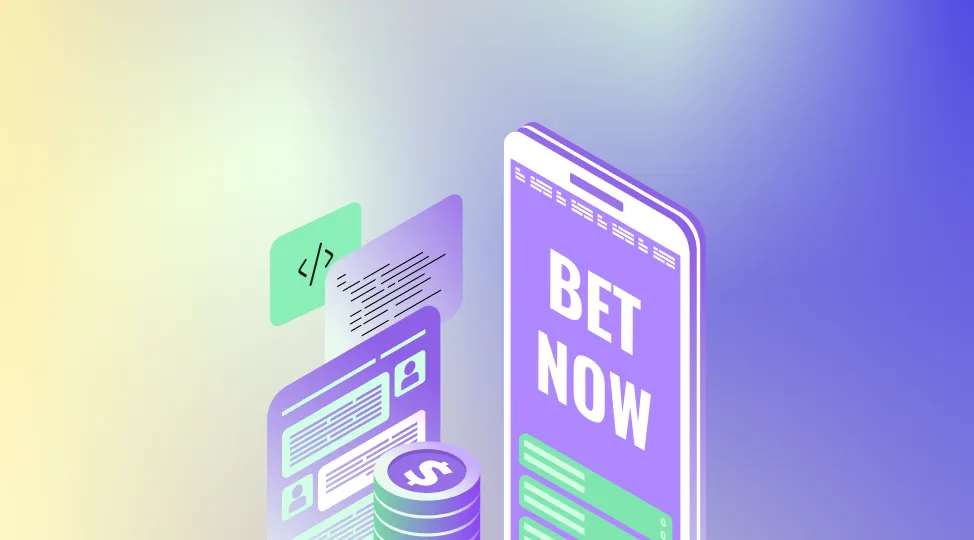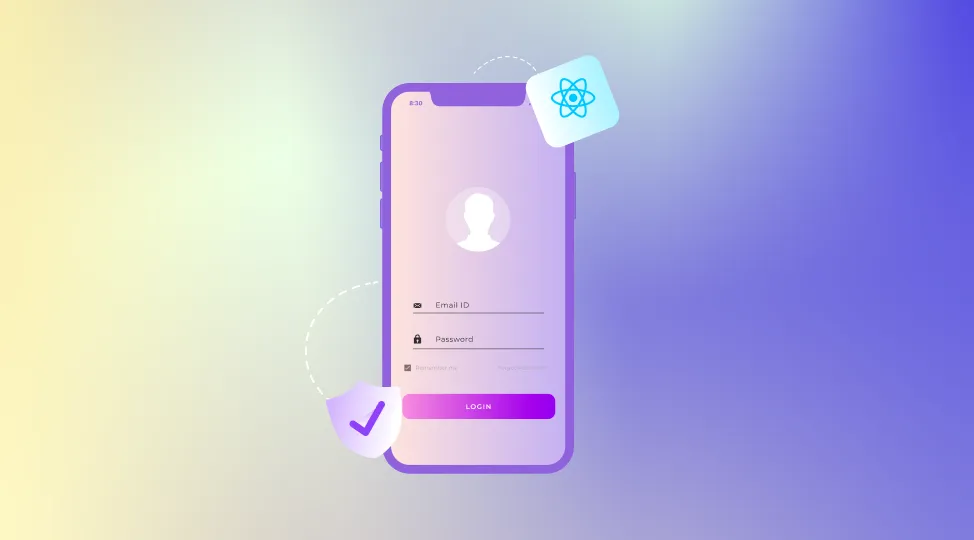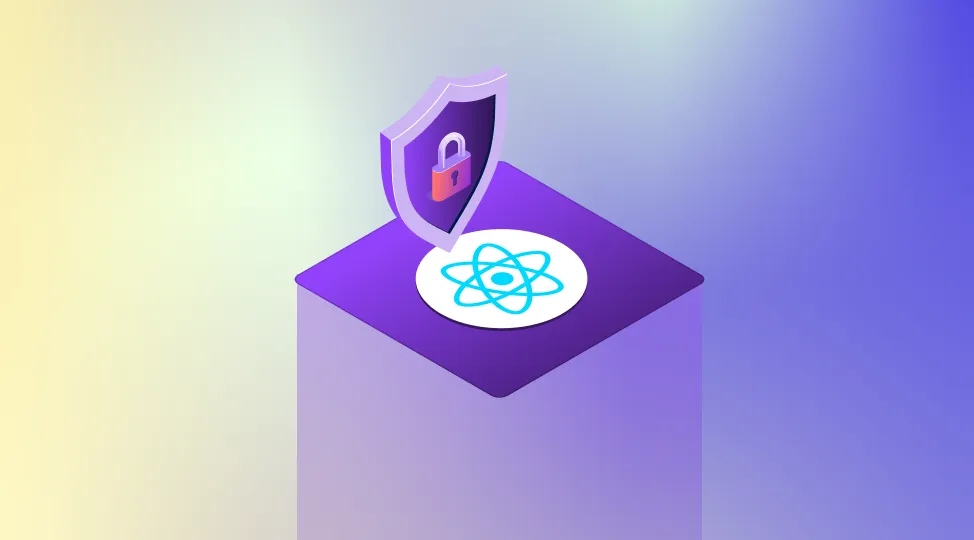Whether you’re launching a niche content network or engineering the next large-scale streaming service, building an OTT app in 2026 demands far more than smooth playback and polished UI. Today’s users expect a scalable OTT platform that performs flawlessly across Smart TVs, Apple TV, Fire TV, mobile devices, and the web, without latency, security gaps, or inconsistent experiences.
This guide is designed as a practical blueprint for modern OTT app development. It breaks down how leading streaming platforms architect their systems in 2026, from backend infrastructure and video delivery to cross-device optimization and monetization models that actually scale. You’ll learn how to design an OTT platform that supports growth from day one, instead of patching scalability issues later when traffic spikes.
Inside, we cover the full lifecycle of OTT platform development: the right tech stack, multi-platform deployment strategies, must-have features for retention, realistic cost considerations, and common pitfalls teams still make when moving from MVP to production. We also explore how modern platforms balance performance with flexibility, especially as more teams adopt modular or low-code approaches to speed up delivery without sacrificing control.
If you're serious about launching or scaling a high-performing OTT platform, this is where your journey starts.
Let's future proof your streaming business, one smart decision at a time.
Why OTT App Development Is Trending in 2025
Consumers in the U.S. now spend more than 8 hours per week streaming video content. Platforms like Netflix, Hulu, and Disney+ have set user expectations incredibly high.
To compete, your OTT platform app development must meet industry standards and offer something uniquely yours whether it's niche content, exclusive live streaming, or a hyper-personalized user experience.
Before learning the step-by-step process, let's see the benefits of OTT development.
10 Powerful Benefits of Investing in OTT App Development
Choosing to develop OTT apps is as much a technological decision as it is a growth strategy, it’s a smart move aligned with trending technologies. Whether you're starting a global entertainment brand or a niche content channel, the following factors make building your own OTT platform one of the greatest investments you can make in 2025:

1. Revenue Models Direct to Consumer
2. Less Reliance on External Platforms
3. Data Ownership and Audience Insights
4. Cross-Platform Compatibility
5. Scalable Monetization Options
6. Enhanced User Engagement Features
7. Offline Viewing & Multi-device Access
8. High ROI on Niche Audiences
9. Real-Time Analytics and A/B Testing
10, Content Distribution Flexibility
Step-by-Step OTT App Development Process
Building an app is only one aspect of entering the OTT market in 2025; another is developing a smooth, multi-platform video delivery system. Regardless of your preferred platform, mobile, SmartTV, Apple TV, or Fire TV, a successful OTT development plan needs to be based on a systematic, organized procedure.
Here is a thorough, step-by-step guide on how to design apps for OTT platforms correctly:
1. Define Your Business Goals and Monetization Model
Before writing a single line of code, clarify the purpose of your OTT app. Is it to deliver niche educational content? Live-stream sports? Provide a Netflix-style entertainment library? Your answer determines your content strategy, feature set, and monetization approach.
Popular OTT monetization models include:
-
Transactional video on demand, or TVOD, refers to one-time fees for purchases or rentals.
-
SVOD (Subscription Video on Demand): Perfect for series or frequent uploads, this service requires recurring monthly or annual fees.
-
Ad-Supported Video on Demand, or AVOD, offers free access with tailored advertisements for a wider audience.
-
Hybrid Models: Combine AVOD + SVOD to offer flexible packages for different audiences.
Monetization should be mapped to your audience's willingness to pay and the type of content you offer. For a detailed cost estimate, refer to our [Mobile App Development Cost] guide(https://quokkalabs.com/blog/mobile-app-development-cost/).
2. Choose the Right Tech Stack for OTT App Development
The tech stack makes the backbone of your OTT video app development. Your choices here impact performance, scalability, and time-to-market.
Suggested Tech Stack:
1. Frontend (User Interface): Kotlin (Android), Flutter, Swift (iOS), and React Native
2. Backend (Logic and APIs): Python, Go, and Node.js
3. Content Delivery Network (CDN): Cloudflare, Akamai, and Quickly
4. Streaming protocols: HLS (HTTP Live Streaming)
5. Cloud infrastructure: AWS Media Services, Google Cloud Media, and Microsoft Azure
3. Build a Multi-Platform Streaming Ecosystem
Users today expect to access content on any device seamlessly. Your OTT platform app development strategy must prioritize cross-platform compatibility from the start.
Essential platforms to target:
-
Mobile (iOS & Android) – via native or hybrid app frameworks
-
SmartTV App Development – including Samsung (Tizen), LG (webOS), and Android TV
-
Apple TV App Development – via tvOS and Xcode
-
Fire TV App Development – using Amazon Fire App Builder or Android SDK
-
Web App – for browser-based streaming
Why it matters: Ignoring SmartTV or Fire TV users means missing out on millions of living-room viewers. A unified codebase and modular architecture can speed up deployment on all platforms.
4. Design a Scalable Cloud-Based Architecture
Your infrastructure needs to grow with the number of users without affecting the user experience. Even for events with large traffic, a strong cloud architecture guarantees less downtime and quick video delivery.
Scalable Cloud Architecture Must Include:
-
Auto-scaling servers for load balancing
-
Microservices architecture for flexibility
-
Containerization using Docker or Kubernetes
-
Secure content storage with geo-distribution
-
Real-time analytics via Datadog, New Relic, or AWS CloudWatch
5. Integrate a High-Performance Video Player
A robust video player is the heart of custom OTT app development. It determines how content is consumed, how smoothly it plays, and how much control the user has.
Features to prioritize:
-
Adaptive bitrate streaming
-
Multi-language subtitle support
-
Playback controls (speed, rewind, resume)
-
Picture-in-picture (PiP) mode
-
Casting support (Chromecast, AirPlay)
-
(DRM) Digital Rights Management
-
Also, there are top video players comprised of ExoPlayer (Android), AVPlayer (iOS), Shaka Player, and JWPlayer. These offer reliable performance across all platforms.
6. Implement Core OTT App Features
Your video streaming app development should include must-have features that drive retention and monetization:
-
User registration, profiles, and preferences
-
Subscription management and billing
-
In-app purchases and upsells
-
Watch history and resume playback
-
Live streaming with low latency
-
Download for offline viewing
-
AI-driven content recommendations
-
Social sharing tools
For a feature-cost breakdown, explore our App Development Cost Breakdown guide.
7. Test, Monitor, and Optimize Performance
A robust QA and testing phase ensures that your app is production ready. Testing should include:
-
Device compatibility (TVs, phones, tablets)
-
Streaming quality under various bandwidths
-
Load testing for concurrent users
-
UI/UX responsiveness and accessibility
Post-launch, use analytics platforms like Mixpanel, Firebase, or Amplitude to track:
-
Video completion rates
-
Churn rate
-
Buffering times
-
User engagement metrics
10 Must-Have Features for Modern OTT Apps
A scalable OTT App Development process must include features that enhance engagement, retention, and monetization:
-
User Profiles & Parental Controls
-
AI-Based Content Recommendations
-
Multi-device Synchronization
-
In-App Purchases & Subscriptions
-
Live Streaming Support
-
Offline Downloading
-
Watch History & Resume Playback
-
Social Sharing Tools
-
In-App Messaging & Notifications
-
Content Rating and Reviews

Monetization Strategies for OTT Apps in 2025
Monetizing a custom OTT app development project goes far beyond placing ads.
1. Subscription Tiers
This offers multiple subscription levels (e.g., Basic, Premium, Family) with varying features and pricing. Tiered models increase conversion and reduce churn.
2. Dynamic Ads and AVOD
Use AI-driven ad tech to help relevant ads. It boosts click-through rates and improves user experience. Integrate with platforms like Google Ad Manager or SpotX.
3. Pay-Per-View Events
Perfect for sports, concerts, or one-time exclusive content. This works well for creators with a dedicated following.
4. In-App Purchases
Let users to buy content, merchandise, or extra features within your app.
Security & Compliance for OTT App Development
Making sure your OTT video app development process has strong security mechanisms is not optional, but rather crucial given the rising worries about user privacy, data leakage, and content theft.
Key Security Measures for OTT Platforms
-
DRM Integration: To protect against illegal access or downloads, use Digital Rights Management (such as Widevine or FairPlay).
-
Secure video streams with industry-standard encryption for end-to-end security are provided using AES-128 encryption.
-
Token-Based Authentication: Prevent link sharing and content misuse by enabling access restriction - via expiring tokens.
-
Adding an additional layer of user verification, especially for admin access or payment processing, is possible with two-factor authentication.
Compliance Essentials
-
GDPR & CCPA Compliance: Ensure your custom OTT app development complies with international data privacy regulations, especially if serving users in the U.S. and EU.
-
Content Licensing & Copyright: Secure distribution rights for all video content to avoid legal issues.
Analytics & Performance Monitoring Made Simple
Running a successful over-the-top app in 2025 needs tracking how people view and engage with your content. You can increase revenue, decrease drop-offs, and enhance user experience using real-time data.
From the beginning, incorporate technologies such as Mixpanel or Firebase to track what is working and address what isn't across all platforms, including mobile, Apple TV, Fire TV, and SmartTV.
Key Metrics to Monitor:
-
Watch Time & Session Duration
-
Video Completion Rate
-
Subscription Conversion Rates
-
Buffering Issues & Playback Errors
-
User Churn & Retention Trends
Innovative tools like Mixpanel, Firebase, and Google Analytics for Firebase help you gather device-specific data, run A/B tests, and gain insights into feature adoption.
For OTT platforms with complex infrastructures, monitoring server load and streaming quality via CDNs and backend tools (e.g., Datadog, New Relic) ensures your app scales smoothly during peak traffic.
OTT Development Cost Breakdown — From Idea to Launch
Planning to build an OTT platform? Know this: the total cost can swing widely based on features, platform support (like Apple TV, Fire TV, Smart TVs, mobile), and your tech stack choices. Here’s how your budget will get sliced and where you need to make smart decisions.
1. Discovery & Planning
Cost: $5,000 – $10,000
This stage includes market research, feature scoping, and your business model. Skimp here, and you risk building the wrong product.
2. UI/UX Design
Cost: $10,000 – $25,000
You're not just designing screens, you're designing the viewer’s experience. This includes custom interfaces for mobile, web, and TV platforms.
3. Core Development
This is where most of your budget goes. Choose your platforms wisely.
-
Mobile OTT App (iOS & Android): $30,000 – $80,000
-
SmartTV App (Samsung, LG, etc.): $15,000 – $40,000
-
Apple TV / Fire TV Apps: $10,000 – $35,000 each
Tip: Don't build for every platform out of the gate. Start where your users are.
4. Backend & Streaming Infrastructure
Cost: $20,000 – $60,000
This is your app’s engine: APIs, video encoding, cloud servers, and CDNs. Solid infrastructure equals smooth streaming and happy users.
5. Testing & QA
Cost: $5,000 – $15,000
Every device, every screen size, it all needs to work. Testing ensures your app doesn’t fall apart under real-world use.
6. Post-Launch Support
Cost: Ongoing/monthly
Launching is not the final task; it’s the beginning. Budget for regular updates, performance monitoring, and user-driven tweaks.
Total Estimated Cost Range
For a multi-platform OTT app with moderate complexity: $80,000–$250,000+
For a niche, single-platform MVP: $40,000–$90,000
Industry-Specific OTT App Cost Scenarios
To give you a more accurate picture, here’s how costs might vary across different industries and use cases:
Educational OTT Platform
-
Use Case: On-demand courses, live classes, and certificate management
-
Required Features: DRM-protected videos, progress tracking, quizzes, multi-language support, instructor dashboards
-
Estimated Budget: $90,000–$160,000
Fitness Streaming App
-
Use Case: Subscription-based fitness classes, live coaching, progress tracking
-
Required Features: SVOD, health app integration, casting support, wearable device sync
-
Estimated Budget: $75,000–$140,000
Entertainment or Creator-Driven Platform
-
Use Case: Original video content, pay-per-view events, fan engagement
-
Required Features: Hybrid monetization (SVOD + TVOD), watch history, chat, social sharing, offline downloads
-
Estimated Budget: $100,000–$200,000
Live Sports Streaming Platform
-
Use Case: High-traffic live events, multiple camera angles, real-time stats
-
Required Features: Ultra-low latency live streaming, pay-per-view, multi-language commentary, DVR playback
-
Estimated Budget: $150,000–$300,000+
Gaming & Esports Streaming App
-
Use Case: Livestreaming tournaments, game replays, community interaction
-
Required Features: Live chat, user profiles, donations/tips, casting, leaderboard integration
-
Estimated Budget: $120,000–$220,000
Platform-Specific OTT App Development Tips
For optimal reach, performance, and user satisfaction, tailor your OTT app development approach to each platform. Here's how to modify your app to work on all of the main streaming platforms and devices:
Mobile (iOS & Android)
Custom video streaming app development for mobile users is essential. Ensure:
-
Responsive UI/UX for different screen sizes
-
Integration with native payments (Apple Pay, Google Pay)
-
Support for offline viewing and push notifications
Apple TV App Development
-
Follow Apple's tvOS human interface guidelines
-
Implement Siri voice search and top-shelf content previews
-
Ensure support for AirPlay and multi-user profiles
Fire TV App Development
-
Use Amazon's Fire App Builder or Android SDK
-
Integrate Alexa voice commands
-
Optimize UI for D-pad navigation and Fire remote
SmartTV App Development (Samsung, LG, Android TV)
-
Build native apps using Tizen (Samsung) and webOS (LG)
-
Ensure compatibility with remote-based UIs
-
Enable seamless OTA updates and real-time analytics
Web Platforms
-
Use responsive web design for all browsers
-
Ensure smooth video playback with HLS or MPEG-DASH
-
Optimize for SEO and fast load times
Common Pitfalls in OTT App Development (and How to Avoid Them)
A lot of businesses stumble over the same common mistakes hurting their app’s scalability, user experience, and revenue potential.
The good news? Most of these issues are totally avoidable. Knowing what to watch out for is key if you desire to create a video streaming app that performs well and keeps users coming back.
1. Overlooking Scalability Early On
Many teams focus only on MVP features and ignore long-term scaling. Your OTT platform app development must be built with microservices and cloud-native architecture to handle user growth.
2. Choosing the Wrong Monetization Model
Selecting SVOD, AVOD, or hybrid models without analyzing user behavior leads to low revenue. Successful OTT video app development strategies involve flexible payment options and dynamic pricing.
3. Poor Multi-Device Support
Users expect seamless access across SmartTV, Apple TV, Fire TV, and mobile platforms. Failing to invest in SmartTV App Development or Apple TV App Development limits your audience reach.
4. Skipping Real-World Testing
Testing on simulators is not enough. Test on real devices across various OS versions to avoid playback issues and buffering.
5. Ignoring Content Licensing
Without proper rights, your content could be removed or blocked.
Top OTT App Development Trends to Watch in 2025
Keep your OTT app future-ready by adding the latest trends to your development plan.
-
AI-Powered Content Curation – Boost engagement with intelligent, personalized recommendations.
-
Interactive & Choose-Your-Path Storytelling – Increase watch time with immersive viewer experiences.
-
Voice-Controlled Navigation – Enhance accessibility across Apple TV, Fire TV, and SmartTV apps.
-
5G-Optimized Streaming – Deliver ultra-fast, buffer-free playback on mobile and SmartTV.
-
Hyperlocal Content Delivery – Tap into niche markets with location-targeted programming.
Ready to Dominate Streaming in 2025? Start Your OTT App Development Journey Today
The OTT market in 2025 is more competitive and more promising than ever. With user expectations rising across platforms like Apple TV, Fire TV, Smart TV, and mobile devices, building a scalable, high-performance app is no longer optional. It’s the baseline.
Whether you're planning to launch a niche platform for live yoga sessions or scale an entertainment empire to rival the best in the business, the foundation remains the same:
-
A clear business strategy
-
The right monetization model
-
A future-proof tech stack
-
Seamless multi-device support
-
And above all, a user-first experience
At Quokka Labs, we don’t just write code. As a trusted custom mobile app development services provider, we collaborate with ambitious brands to build OTT solutions that perform under pressure, scale with growth, and deliver real user engagement across any screen, anywhere.
Your audience is out there. The only question is, are you ready to meet them where they are?
Let’s bring your OTT vision to life. Book your free strategy session and start building the platform your users won’t want to leave viewers and revenue to outdated video platforms.

Tags
Custom mobile app development
Entertainment App
OTT app development
latest technologies
App Development
app development trends



 Facebook
Facebook
 Twitter
Twitter
 LinkedIn
LinkedIn
 Pinterest
Pinterest







